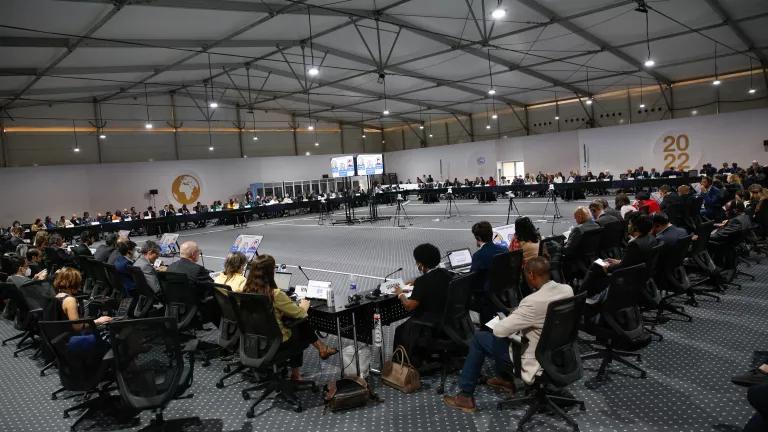The U.S. must enforce its Existing Trade Agreement with Peru before Signing the Largest Trade Agreement in History
The United States government is gearing up to finalize a major international trade agreement called the Trans-Pacific Partnership (TPP). If signed, the TPP will be the largest trade agreement in history, standardizing trade rules among 12 countries on the Pacific Ocean--Australia, Brunei, Canada, Chile, Japan, Malaysia, Mexico, New Zealand, Peru, Singapore, Vietnam and the U.S.--with the potential for others, such as Korea and China, to join in the future. The trade among these countries accounts for 40% of the world's GDP and 26% of the world's trade; no doubt, then, that it could be a real boon for business. Yet there are reasons to have grave concerns about this agreement's potential for serious environments impacts.
The U.S. government says the TPP will promote strong environmental protection, with "robust environment standards and commitments from member countries, and addressing some of the region's most pressing environmental challenges." They are holding up the U.S. Trade Promotion Agreement (TPA) with Peru as the standard for the environmental conditions we can expect to see in the TPP. NRDC has set out its views on what should be in this agreement and what should be left out. Indeed, the U.S.-Peru TPA includes a stringent environment chapter, which itself contains a robust Annex on Forest Sector Governance to help tackle "trade associated with illegal logging and illegal trade in wildlife."
However, in order for those standards to be meaningful, they must be enforced. Developments in Peru signal that, in fact, the TPA's environment chapter is not being enforced; instead, Peru is flagrantly violating its obligations.
At the heart of the issue in Peru is the 2014 Law 30230 (or PL 30230), "Tax Law Establishing Measures, Simplified Procedures and Permits for the Promotion and Dynamization of Investment in the Country," which reduces the oversight and enforcement capabilities of environmental authorities when dealing with private companies (including U.S. companies) whose projects could negatively impact the environment. The provisions of this new law explicitly contradict Article 18.3.2 of the U.S.-Peru TPA:
"The Parties recognize that it is inappropriate to encourage trade or investment by weakening or reducing the protections afforded in their respective environmental laws. Accordingly, a Party shall not waive or otherwise derogate from, or offer to waive or otherwise derogate from, such laws in a manner that weakens or reduces the protections afforded in those laws in a manner affecting trade or investment between the Parties."
So far, we have yet to see a real response from the U.S. government to this breach of a bilateral agreement. Without prompt, serious enforcement of the conditions in the environment chapter (or any chapter, for that matter), the entire document lacks teeth.
So while USTR is touting the potential benefits of TPP it is important to not lose sight of the fact that strong agreements with weak enforcement do not protect people and the planet. Therefore, it is critical to ensure that existing trade agreements are being respected and enforced.
NRDC is proud to have recently sent a letter along with eight other organizations to the United States Trade Representative, urging Ambassador Michael Froman to take action to ensure the TPA with Peru is enforced. The letter is available here and it details how PL 30230 weakens Peru's environmental authorities.
Without real enforcement of the provisions in the U.S. TPA with Peru - or with any country - how can we be sure that the environmental conditions in the TPP will be respected? The answer is simple: we can't.
The U.S. government must use all the enforcement tools provided under the trade agreement to ensure that Peru does not weaken its environmental standards and violate its responsibilities under the TPA. Unless countries stand by their pledges to uphold the environmental standards written into trade agreements, these become meaningless. It must be clear that strong requirements in trade agreements are backed up with strong enforcement, and that language must fundamentally translate into action on the ground.




